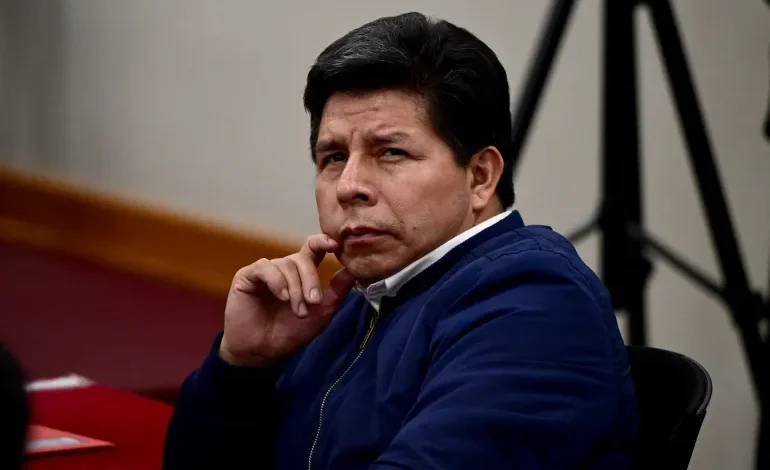Peru’s Pedro Castillo sentenced to 11 years for attempted power grab

A Peruvian court has sentenced former President Pedro Castillo to 11 years, five months and 15 days in prison for attempting to dissolve Congress, nearly three years after his dramatic bid to shut down the legislature as impeachment proceedings closed in on him.
The ruling follows Castillo’s televised address on December 7, 2022, in which he declared a state of emergency and moved to suspend Congress, accusing lawmakers of eroding the rule of law. Within hours, legislators voted to impeach and remove him, and he was arrested the same day.
Castillo, a former rural schoolteacher and union leader, was found guilty of rebellion and conspiracy against the state, charges prosecutors argued stemmed from what they described as a deliberate attempt to undermine the Constitution in a “self-coup”. He had faced a possible sentence of up to 34 years.
At trial last week, Castillo denied any wrongdoing, downplaying his actions. Referring to his televised speech, he said he had only read out “a document without consequence”.
His fall marked another chapter in Peru’s extraordinary cycle of presidential instability. The country has seen eight presidents in just the past decade, with several facing criminal investigations or prison time.
Castillo rose to power after a surprise victory in the 2021 election and was quickly labelled the country’s first “president of the poor”, a nod to his working-class roots in the rural north and his political outsider status. But his 16-month presidency was marred by repeated cabinet reshuffles and constant confrontations with an opposition-controlled Congress.
His arrest triggered widespread protests, particularly among Indigenous communities and rural supporters in the south, who blocked roads and clashed with security forces. The unrest spiralled into a broader national crisis.
His successor, Dina Boluarte, Peru’s first female president, oversaw a severe crackdown on demonstrators that left at least 50 people dead. The Inter-American Commission on Human Rights later accused her government of “disproportionate, indiscriminate and lethal use of force”. Boluarte herself was later impeached and replaced by right-wing politician Jose Jeri.
Castillo’s trial also created diplomatic tensions. During the proceedings, Mexico granted asylum to his former prime minister Betssy Chavel, prompting Peru to declare Mexican President Claudia Sheinbaum, a vocal Castillo supporter, “persona non grata”.
Castillo will not be allowed to serve his sentence under house arrest. Instead, he will be transferred to Barbadillo Prison in Lima, a high-security facility for former leaders, where he will join an increasingly crowded list of jailed ex-presidents.
Among them are Ollanta Humala, serving 15 years for money laundering; Alejandro Toledo, sentenced to 20 years for bribery; and Martin Vizcarra, who this week received a 14-year sentence for corruption.









The latest news in your social feeds
Subscribe to our social media platforms to stay tuned